 Your new post is loading...
 Your new post is loading...
Les responsables du portail européen des données ouvertes (European Data Portal: www.europeandataportal.eu), exploité par la Commission européenne, viennent de publier les résultats de leur analyse 2017 sur l’état d’avancement des pays de l’Union européenne dans le domaine de l’open data.
Le Luxembourg a obtenu un excellent résultat. Son score le classe à la 6e place et lui permet de figurer dorénavant parmi les trendsetters européens dans ce domaine.
Dans cette évaluation, de nombreux facteurs ont été pris en compte, notamment l’existence d’une coordination au niveau national, l’application du principe de licences attribuées, la multitude thématique des jeux de données publiés ainsi que leur qualité, la transposition des directives européennes y afférentes et la mise en œuvre d’une stratégie nationale.
Les experts ont relevé comme un des points forts le portail national luxembourgeois www.data.public.lu qui, en dépit de sa mise en ligne encore récente – il n’a été lancé qu’en 2016 –, a déjà réussi à s’imposer comme une plate-forme centrale générale des données ouvertes pour le Grand-Duché. Learn more / En savoir plus / Mehr erfahren: https://www.scoop.it/t/luxembourg-europe/?&tag=Open+Data https://www.scoop.it/t/luxembourg-europe/?&tag=EU
Via Gust MEES
Check out the 10 Trends in 2016 about UDL, Personal Learner Profiles, Agency, Competency-based Education, Kids Hacking School, Blended Learning, Citizenship, and more...
Via Kathleen McClaskey
L'esprit critique est une dynamique. Ce n'est jamais un acquis définitif, et il peut toujours nous arriver d'en manquer, d'être entraîné par nos opinions, par nos préjugés, de laisser de côté des aspects de la réalité qui nous gênent ou nous remettent en question. Le sociologue Max Weber, dans un ouvrage célèbre, Le savant et le politique, écrit : « La tâche primordiale d'un professeur capable est d'apprendre à ses élèves à reconnaître qu'il y a des faits inconfortables, j'entends par là des faits qui sont désagréables à l'opinion personnelle d'un individu ; en effet il existe des faits extrêmement désagréables pour chaque opinion, y compris la mienne » (Max Weber, Le Savant et le politique). On ne peut donc pas se prévaloir purement et simplement de l'esprit critique : on s'efforce d'en avoir, et cela se traduit par des pratiques. C'est à cet effort incessant que l'enseignant initie progressivement ses élèves. Learn more / En savoir plus / Mehr erfahren: http://www.scoop.it/t/21st-century-learning-and-teaching?tag=Critical-Thinking
Via Gust MEES
Think about the jobs in today’s economy — the ones we’re supposed to prepare students for after graduation. Are employees evaluated using bubble-in tests to prove they know the ins and outs of their job? Do they learn and use new skills one at a time in a vacuum? The questions sound a bit silly until you realize too often that’s what students take away from their education. Why is the culture to drill facts into students’ heads just to pass a test?
Just like in the real world, my students show what they can do through projects, teamwork, and research. Is it working? Well, according to state science exams, my students consistently score higher than other science classes in my district.
I’ve never been a big believer in teaching to a test. Indeed, since my first year in the classroom I’ve used a project-based model with my science and social studies classes. On the first day of school I issue my fifth-graders a PASSPORT (which stands for Preparing All Students for Success by Participating in an Ongoing Real-world simulation using Technology) and explain that their yearlong adventure to “Johnsonville” starts today. The school year is a simulation of adulthood where students work, create, and learn about personal finance and entrepreneurial skills. They experience real-world situations and gain insights into global affairs. Students tend to view my classroom less as a “classroom” and more of an interactive city where all projects intertwine to create an ecosystem of businesses and homes. Learn more / En savoir plus / Mehr erfahren: http://www.scoop.it/t/21st-century-learning-and-teaching/?tag=Learning+by+doing http://www.scoop.it/t/21st-century-learning-and-teaching/?tag=PBL
Via Gust MEES
On this day 25 years ago, August 6, 1991, the world's first website created by Tim Berners-Lee went live
Via Gust MEES
"As regular readers know, it’s time for me to begin posting my mid-year “The Best….” lists. There are nearly 1,600 regularly updated lists now. You can see them all here. As usual, in order to make …" ©
Via Leona Ungerer, Juergen Wagner
No relatório 'New Vision for Education: Fomento Social e aprendizagem emocional através da Tecnologia ", o Fórum Econômico Mundial explora como" qualidades de caráter ", como colaboração, comunicação e pensamento crítico vai equipar os alunos para ter sucesso na economia digital em rápida evolução. Para prosperar no século 21, os alunos precisam de mais do que a aprendizagem acadêmica tradicional. . Eles devem ser adepto de colaboração, comunicação e resolução de problemas, que são algumas das habilidades desenvolvidas através da aprendizagem social e emocional (SEL) Em 2015, o Fórum Econômico Mundial (WEF) publicou o relatório New Vision for Education: Desbloquear o Potencial of Technology que incidiu sobre a questão premente do fosso e as formas de resolvê-lo através da tecnologia habilidades do século 21. Nesse relatório, WEF definiu um conjunto de 16 proficiências cruciais para a educação. Dessas habilidades, 10 foram marcadas tanto "competências" ou "qualidades de caráter". As competências são os meios pelos quais os alunos abordam desafios complexos; eles incluem colaboração, comunicação e pensamento crítico e resolução de problemas. Qualidades de caráter são as maneiras pelas quais os alunos se aproximam seu ambiente de mudança; eles incluem curiosidade, adaptabilidade e consciência social e cultural.
Saiba mais savoir / en plus erfahren / Mehr: https://gustmees.wordpress.com/2016/05/19/a-holistic-view-of-what-will-influence-education-in-the-future/
Via Gust MEES, Carlos Rodrigues Cadre, Rui Guimarães Lima
TEACHER LEADERSHIP & DEEPER LEARNING FOR ALL STUDENTS
In this new paper commissioned by the Ford Foundation, Barnett Berry makes the case for how a system of teacher leadership and learning can fuel deeper learning for all students.
Here is what the paper tackles:
examines current reforms’ limitations and notes some promising emergent examples, (like Social Justice Humanitas Academy in LAUSD); summarizes 30 years of research about how teachers learn and lead (also drawing on stories of teachers CTQ has worked with since our founding in 1998); identifies three promising shifts that could be leveraged to create an effective system of teacher leadership and learning; and
describes next steps that stakeholders (including policymakers, USDOE, state education leaders, superintendents, and others) can take to advance teacher leadership toward a more equitable public education system. The infographic below reveals 3 big changes we can leverage now to improve public education for all students. Learn more / En savoir plus / Mehr erfahren: http://www.scoop.it/t/21st-century-learning-and-teaching/?tag=LeaderShip http://www.scoop.it/t/21st-century-learning-and-teaching/?tag=Situational+Leadership+Theory
Via Gust MEES, Ajo Monzó
|
— Breaking up and spacing out study time over days or weeks can substantially boost how much of the material students retain, and for longer, compared to lumping everything into a single, nose-to-the-grindstone session.
— Varying the studying environment — by hitting the books in, say, a cafe or garden rather than only hunkering down in the library, or even by listening to different background music — can help reinforce and sharpen the memory of what you learn.
— A 15-minute break to go for a walk or trawl on social media isn’t necessarily wasteful procrastination. Distractions and interruptions can allow for mental “incubation” and flashes of insight — but only if you’ve been working at a problem for a while and get stuck, according to a 2009 research meta-analysis.
— Quizzing oneself on new material, such as by reciting it aloud from memory or trying to tell a friend about it, is a far more powerful way to master information than just re-reading it, according to work by researchers including Henry Roediger III and Jeffrey Karpicke. (Roediger has co-authored his own book, “Make It Stick: The Science of Successful Learning.”)
Learn more / En savoir plus / Mehr erfahren: https://gustmees.wordpress.com/2016/03/14/time-the-most-important-factor-neglected-in-education/ http://www.scoop.it/t/21st-century-learning-and-teaching/?tag=Brain
Via Gust MEES, massimo facchinetti
Yet, note that I don’t write articles to get the approval of a teacher or another person. I write and share because I am compelled to do so. I consider it a personal calling to stretch myself and others to consider the challenges and opportunities of life and learning in a connected and digital age. I write the article whether ten people read it or ten thousand people read it. As I often draw from the wisdom of Isaac Asimov to point out, Writing is just thinking with my fingers.” I write to think and to share those thoughts with others. I believe that ideas matter and that, too often today, we turn our ideas into propaganda by only making them visible in their finished and polished formats. I want people to see my ideas in their naked or raw format as well. They are ideas without the lipstick, without being dressed to impress. Learn more / En savoir plus / Mehr erfahren: http://www.scoop.it/t/21st-century-learning-and-teaching/?tag=listening https://gustmees.wordpress.com/2016/09/22/blogs-tips-and-tricks/
Via Gust MEES
I hope you find the Brain Hacking infographic above useful. You can access the other Brain-Based Learning infographics I created by scrolling down my ED!Blog. Please share it with other educators, parents, and learners. I will feature additional Brain-Based Learning Infographics in my future NEWSLETTERS, so please SIGN UP if you would like to receive more tips and strategies that work in helping students become better learners.
If you find the information in the infographic useful, consider buying "Crush School: Every Student's Guide To Killing It In The Classroom", which is a book I wrote to help students learn more efficiently and effectively using proven research based strategies.
Via Gust MEES, Edumorfosis
The Rigor Relevance Framework®
The Rigor/Relevance Framework is a tool developed by the International Center to examine curriculum, instruction, and assessment along the two dimensions of higher standards and student achievement. It can be used in the development of both instruction and assessment. In addition, teachers can use it to monitor their own progress in adding rigor and relevance to their instruction, and to select appropriate instructional strategies for differentiating instruction and facilitating higher achievement goals.
The Knowledge Taxonomy (y-axis) is a continuum based on the six levels of Bloom's Taxonomy, which describes the increasingly complex ways in which we think. The low end involves acquiring knowledge and being able to recall or locate that knowledge. The high end labels the more complex ways in which individuals use knowledge, such as taking several pieces of knowledge and combining them in both logical and creative ways. Learn more / En savoir plus / Mehr erfahren: http://www.scoop.it/t/21st-century-learning-and-teaching/?tag=Rigor
Via Gust MEES
Critical Thinking
As an organization, critical thinking is at the core of what we do, from essays and lists to models and teacher training. (You can check out What It Means To Think Critically for a wordier survey of the intent of critical thinking.)
For this post, we’ve gathered various critical thinking resources. As you’ll notice, conversation is a fundamental part of critical thinking, if for no other reason than the ability to identify a line of reasoning, analyze, evaluate, and respond to it accurately and thoughtfully is among the most common opportunities for critical thinking for students in every day life. Who is saying what? What’s valid and what’s not? How should I respond?
This collection includes resources for teaching critical thinking, from books and videos to graphics and models, rubrics and taxonomies to presentations and debate communities. Take a look, and let us know in the comments which you found the most–or least–useful. Learn more / En savoir plus / Mehr erfahren: http://www.scoop.it/t/21st-century-learning-and-teaching?tag=Critical-Thinking
Via Gust MEES
that it’s important for young people to become economically independent and self-sufficient. But to do that, he argues, they shouldn’t all learn the same thing. Instead, they should be learning to be adaptable, to be innovative, to flow with change, to collaborate and other globalized skills that will apply to whatever area of work they are passionate about pursuing. An education can help expose students to different life paths and support them in finding their passions, while giving them the transferable skills to attack any problem. Learn more / En savoir plus / Mehr erfahren: http://www.scoop.it/t/21st-century-learning-and-teaching/?tag=Sir-Ken-Robinson
Via Gust MEES
Of course, before I share this with you, I also want to remind you that I am quick to embrace and celebrate an ecosystem of diverse schools. What I describe below is neither the best or only way to create an amazing school curriculum. Yet, I can write with confidence that this would certainly contribute to a rich, engaging and rewarding school experience; one that gives ample voice and choice to learners while challenging them to grow in character, competence, confidence, and purpose.
What is Curriculum?
The word “curriculum”, as best as I can tell, comes from the idea of a race course. It is a course of study, a pathway that leads to some destination. Yet, others simply define it in the broadest sense as everything that goes into a student’s learning experience in a formal education program. Traditionally, people thought of the curriculum in terms of content, assessments, resources (like books and other readings), teacher-guided lessons and learning experiences, and the like. Yet, more recently, much conversation about curriculum focuses upon standards, outcomes, resources, and assessments; the items that we frequently see in curriculum maps. Learn more / En savoir plus / Mehr erfahren: https://gustmees.wordpress.com/2016/07/03/reflections-on-a-professional-strategy-for-eskills-eleadership/
Via Gust MEES, Javier Sánchez Bolado
The digital world is a vast expanse of learning and entertainment. But it is in this digital world that kids are also exposed to many risks, such as cyberbullying, technology addiction, obscene and violent content, radicalization, scams and data theft. The problem lies in the fast and ever evolving nature of the digital world, where proper internet governance and policies for child protection are slow to catch up, rendering them ineffective.
Moreover, there is the digital age gap. The way children use technology is very different from adults. This gap makes it difficult for parents and educators to fully understand the risks and threats that children could face online. As a result, adults may feel unable to advise children on the safe and responsible use of digital technologies. Likewise, this gap gives rise to different perspectives of what is considered acceptable behaviour.
So how can we, as parents, educators and leaders, prepare our children for the digital age? Without a doubt, it is critical for us to equip them with digital intelligence. Learn more / En savoir plus / Mehr erfahren: https://gustmees.wordpress.com/2015/07/19/learning-path-for-professional-21st-century-learning-by-ict-practice/ https://gustmees.wordpress.com/2014/10/03/design-the-learning-of-your-learners-students-ideas/ http://www.dqproject.org/
Via Gust MEES
No relatório 'New Vision for Education: Fomento Social e aprendizagem emocional através da Tecnologia ", o Fórum Econômico Mundial explora como" qualidades de caráter ", como colaboração, comunicação e pensamento crítico vai equipar os alunos para ter sucesso na economia digital em rápida evolução. Para prosperar no século 21, os alunos precisam de mais do que a aprendizagem acadêmica tradicional. . Eles devem ser adepto de colaboração, comunicação e resolução de problemas, que são algumas das habilidades desenvolvidas através da aprendizagem social e emocional (SEL) Em 2015, o Fórum Econômico Mundial (WEF) publicou o relatório New Vision for Education: Desbloquear o Potencial of Technology que incidiu sobre a questão premente do fosso e as formas de resolvê-lo através da tecnologia habilidades do século 21. Nesse relatório, WEF definiu um conjunto de 16 proficiências cruciais para a educação. Dessas habilidades, 10 foram marcadas tanto "competências" ou "qualidades de caráter". As competências são os meios pelos quais os alunos abordam desafios complexos; eles incluem colaboração, comunicação e pensamento crítico e resolução de problemas. Qualidades de caráter são as maneiras pelas quais os alunos se aproximam seu ambiente de mudança; eles incluem curiosidade, adaptabilidade e consciência social e cultural.
Saiba mais savoir / en plus erfahren / Mehr: https://gustmees.wordpress.com/2016/05/19/a-holistic-view-of-what-will-influence-education-in-the-future/
Via Gust MEES, Carlos Rodrigues Cadre, Rui Guimarães Lima
What is professional development? It is pretty much anything that helps one develop professionally. At the heart, professional development is about growth and learning. In the field of education, it seems like many quickly think of educational opportunities that mimic what they see in their schools. As a result, they turn professional learning and education into schooling. The problem with that is that schooling is too limiting. In this age, there are many other exciting and high-impact learning opportunities for teachers that extend beyond traditional notions of schooling. When we hear the phrase “professional development,” certain practices likely come to mind, things like in-services and conferences. In the digital age, there are countless other opportunities for professional development and restricting one’s thoughts to just a few options limits our insight into what is possible for our students. With that in mind, here is a brainstorm of 20 options available to educators today. This is far from an exhaustive list, but it is enough to start exploring the possibilities. Feel free to suggest others in a comment to this post. Learn more: Professional Development: WHY EDUcators And TEACHers Can’t Catch UP THAT Quickly AND How-To Change It LEARNing To LEARN For MY Professional Development | I Did It MY Way
Via Gust MEES, Javier Marrero Acosta
|



 Your new post is loading...
Your new post is loading...

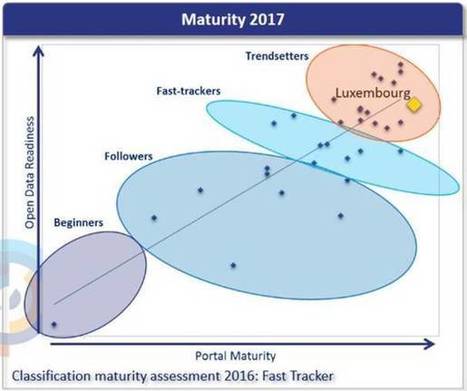




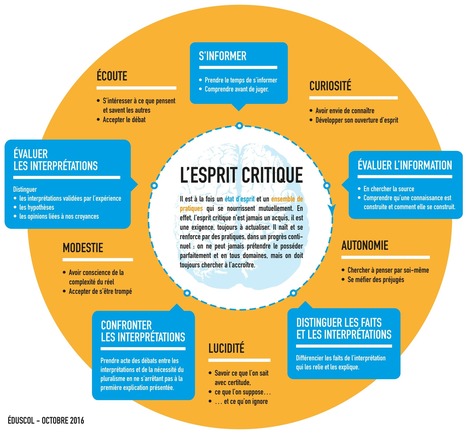
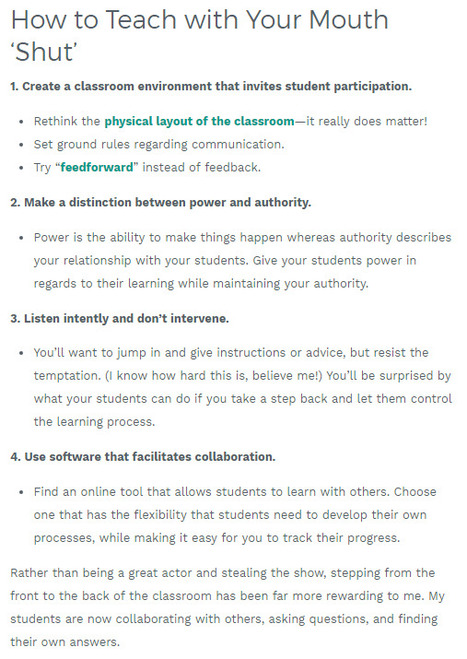



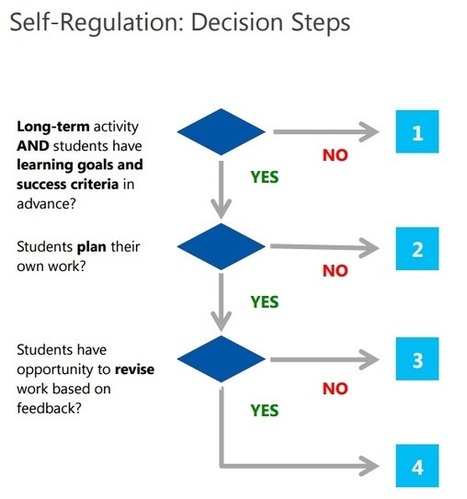

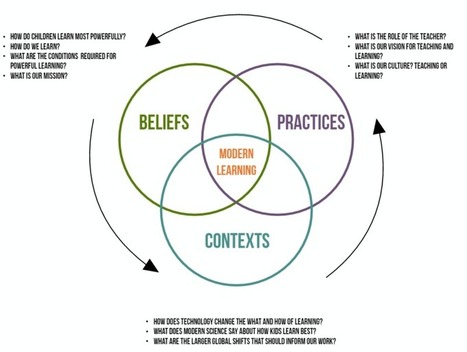

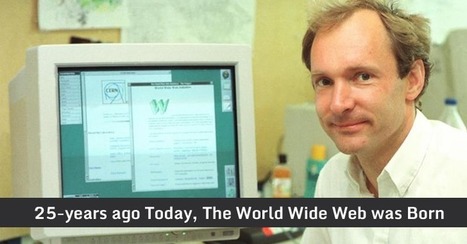




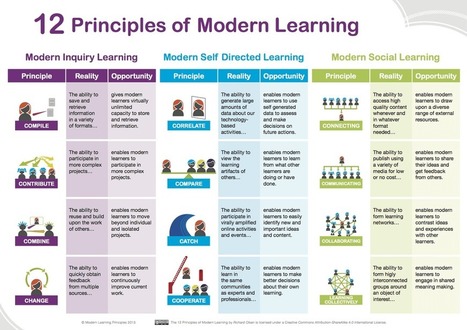


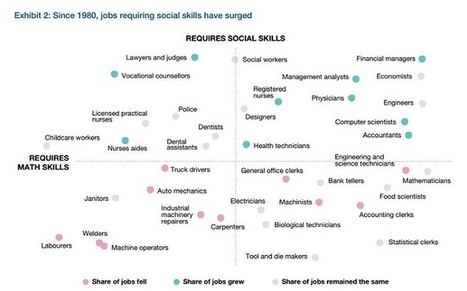
![Teacher leadership & deeper learning for all students [#Infographic] | #CTQ #CTQCollab | E-Learning-Inclusivo (Mashup) | Scoop.it](https://img.scoop.it/3faSGv3dlsagJhsskEuNkDl72eJkfbmt4t8yenImKBVvK0kTmF0xjctABnaLJIm9)

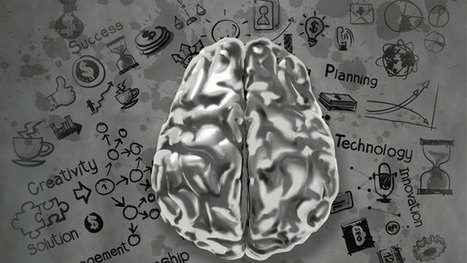

![[Infographic] Why every educator needs to know how the brain learns | E-Learning-Inclusivo (Mashup) | Scoop.it](https://img.scoop.it/gIMRZ7-tl8Fd3EJjeWc8rjl72eJkfbmt4t8yenImKBVvK0kTmF0xjctABnaLJIm9)



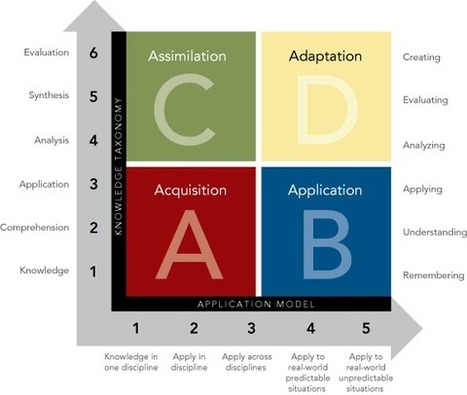
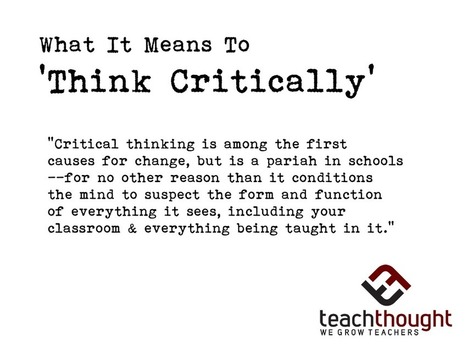

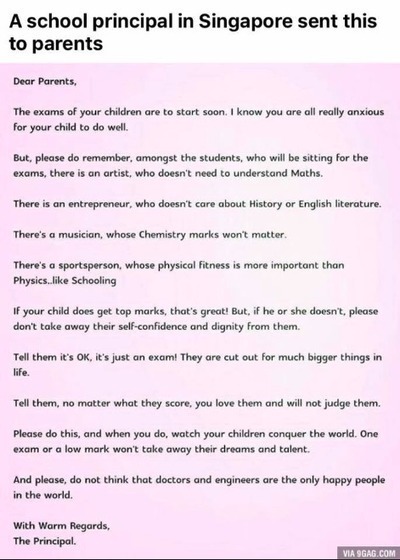
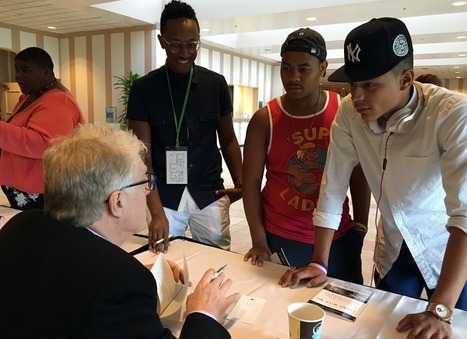
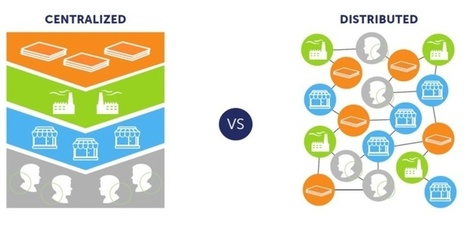

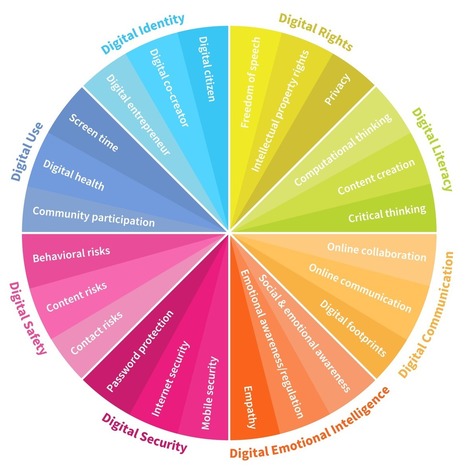











Learn more / En savoir plus / Mehr erfahren:
https://www.scoop.it/t/luxembourg-europe/?&tag=Open+Data
https://www.scoop.it/t/luxembourg-europe/?&tag=EU